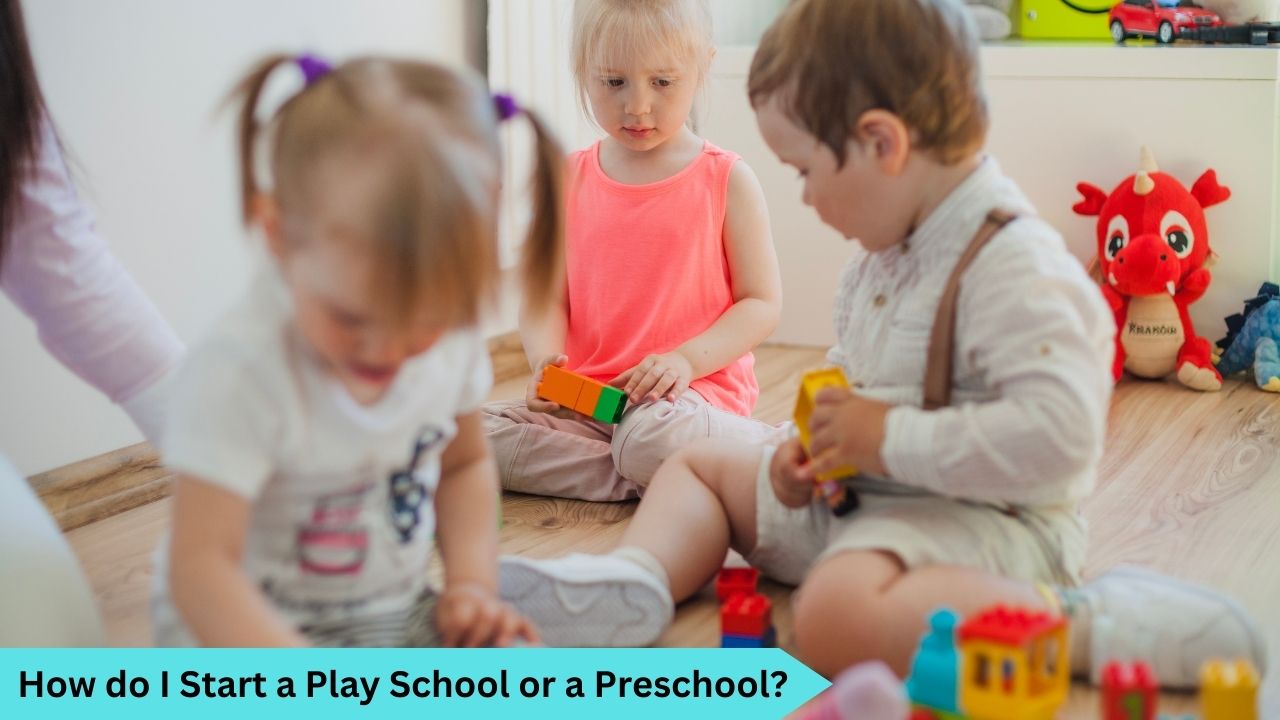Starting a play school or preschool can be a rewarding venture for those passionate about early childhood education. However, the process of establishing and running a successful educational institution requires careful planning, adherence to regulations, and a dedication to providing a safe and stimulating learning environment for young children. This comprehensive guide will walk you through the essential steps involved in starting a play school or preschool, from understanding the educational requirements and securing licensing to developing a curriculum, hiring qualified staff, and implementing effective marketing strategies. By following these key principles and best practices, you can embark on your journey to create a thriving and nurturing educational setting for young learners.
Industry Research & Market Reports- https://www.marketresearch.com/Public-Sector-c93/Education-c233/Pre-School-c821/
1. Research and Planning: Understanding the Requirements
Educational Requirements
Do you know your ABCs from your XYZs? Well, maybe not that basic, but understanding the educational requirements for starting a play school is key. Look into the qualifications needed for teachers, staff ratios, and educational programs.
Regulatory Guidelines and Licensing
Navigating the world of regulations and licensing can be more confusing than a toddler on a sugar rush. Familiarize yourself with the guidelines and requirements set by your local authorities to ensure you are on the right side of the law.
2. Establishing Your Educational Philosophy and Curriculum
Defining Your Educational Philosophy
What’s your vibe, man? Are you all about fostering creativity, promoting independence, or instilling a love for learning? Define your educational philosophy to guide your school’s mission and values.
Developing a Comprehensive Curriculum
From finger painting to phonics, your curriculum is the bread and butter of your play school. Develop a well-rounded program that addresses the developmental needs of young children and aligns with your educational philosophy.
3. Securing Licensing and Permits
Understanding Licensing Regulations
Time to put on your detective hat and unravel the mysteries of licensing regulations. Make sure you have a handle on the requirements for permits, inspections, and certifications needed to operate your play school.
Completing Permit Applications
Get ready to fill out more forms than you did in your entire school career. Complete permit applications diligently, ensuring all necessary information is provided to expedite the licensing process for your play school
4. Creating a Safe and Stimulating Learning Environment
Designing Classroom Layouts
Move over, Martha Stewart – it’s time to design some killer classroom layouts. Create spaces that promote exploration, learning, and play while considering factors like safety, accessibility, and age-appropriate resources.
Implementing Safety Protocols
Safety first, folks! Implementing robust safety protocols is crucial to ensure the well-being of your little charges. From emergency procedures to health and hygiene practices, prioritize creating a secure environment for all in your play school.
5. Hiring Qualified Staff and Teachers
So, you’ve decided to start a play school or preschool. Now, it’s time to build your dream team.
Recruitment Strategies: Finding the right staff is crucial. Look for individuals who are not only qualified but also passionate about early childhood education. Spread the word through job postings, social media, and networking events. Don’t forget to conduct thorough interviews to ensure they fit your school’s culture.
Training and Professional Development: Once you’ve hired your rockstar team, invest in their growth. Provide ongoing training to keep them updated on the latest teaching techniques and child development research. Encourage them to attend workshops and conferences to stay inspired and motivated.
6. Marketing and Enrollment Strategies
Now, you need tiny humans to fill those tiny chairs.
Developing a Marketing Plan: Identify your target audience and craft a marketing strategy that resonates with parents. Utilize social media, local advertising, and community events to showcase what makes your school unique. Highlight your curriculum, facilities, and passionate teachers.
Attracting and Retaining Students: Offer open houses, trial classes, and referral programs to attract families. Provide exceptional customer service and create a warm, welcoming environment to ensure parents and children feel at home. Keep communication channels open and transparent to build trust and retain students.
7. Setting Up Operations and Financial Management
Let’s talk about the not-so-glamorous but essential side of running a play school.
Establishing Budgets and Financial Plans: Crunch those numbers and create a realistic budget that covers expenses like rent, utilities, salaries, and supplies. Monitor your finances regularly and adjust your plans as needed. Consider setting up payment schedules and tuition options that fit your families’ needs.
Implementing Administrative Systems: Streamline your operations by setting up efficient administrative systems. Use technology to manage enrollments, track attendance, and communicate with parents. Establish clear policies and procedures to ensure smooth day-to-day operations.
8. Continuous Evaluation and Improvement for Success
The journey doesn’t end once you open your doors.
Monitoring Educational Outcomes: Keep a close eye on student progress and learning outcomes. Track key metrics like student retention rates, parent satisfaction surveys, and academic achievements. Use this data to make informed decisions about curriculum updates and teaching strategies.
Feedback and Adaptation Processes: Don’t be afraid of feedback – embrace it. Encourage open communication with parents, staff, and students. Actively seek input on what’s working well and what can be improved. Stay nimble and be willing to adapt to ensure your school evolves and thrives.
In conclusion, starting a play school or preschool requires a combination of passion, dedication, and strategic planning. By focusing on creating a high-quality educational experience for young children, maintaining a safe and nurturing environment, and continuously evaluating and improving your practices, you can set yourself up for success in the field of early childhood education. With a commitment to excellence and a genuine love for teaching and learning, your play school or preschool has the potential to positively impact the lives of the children and families it serves.
Enquire now: https://www.growinnsteps.com/be-a-partner/
